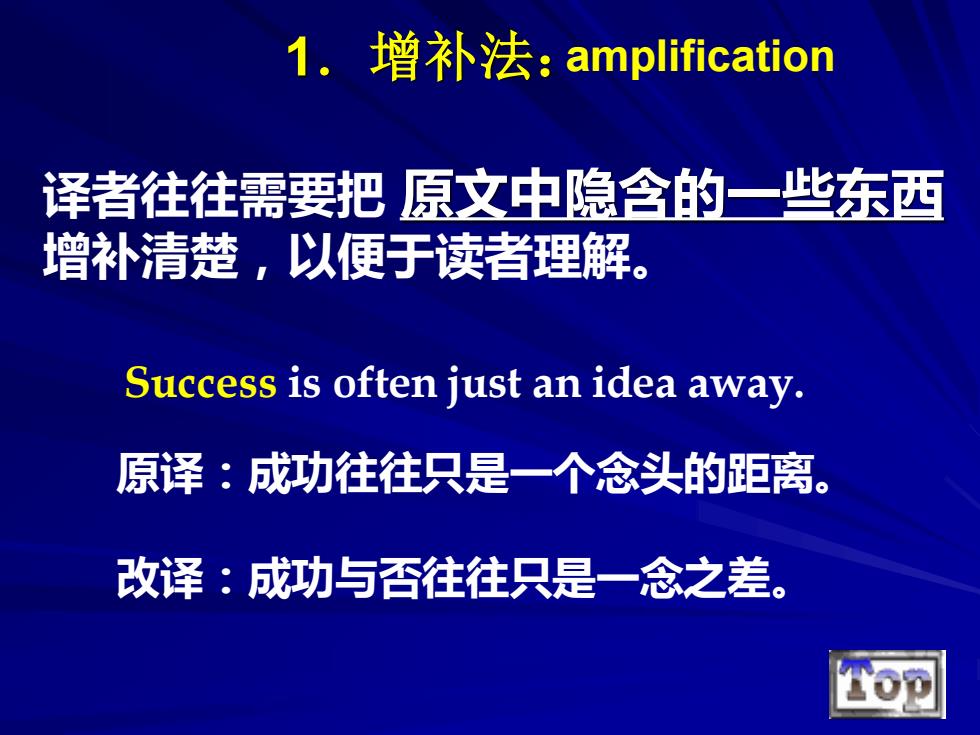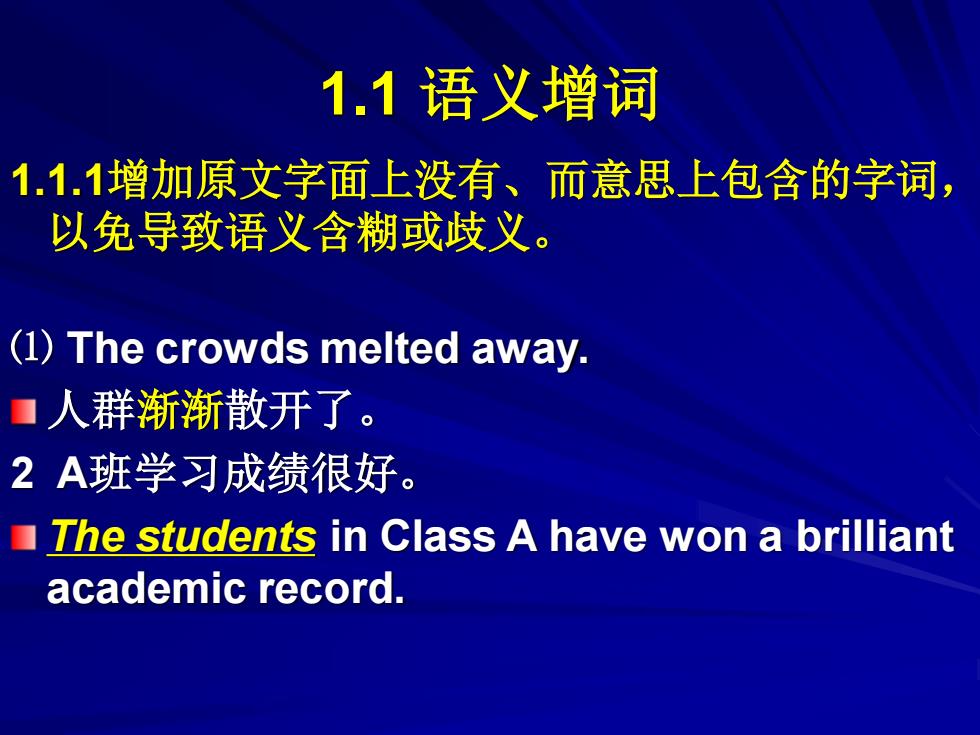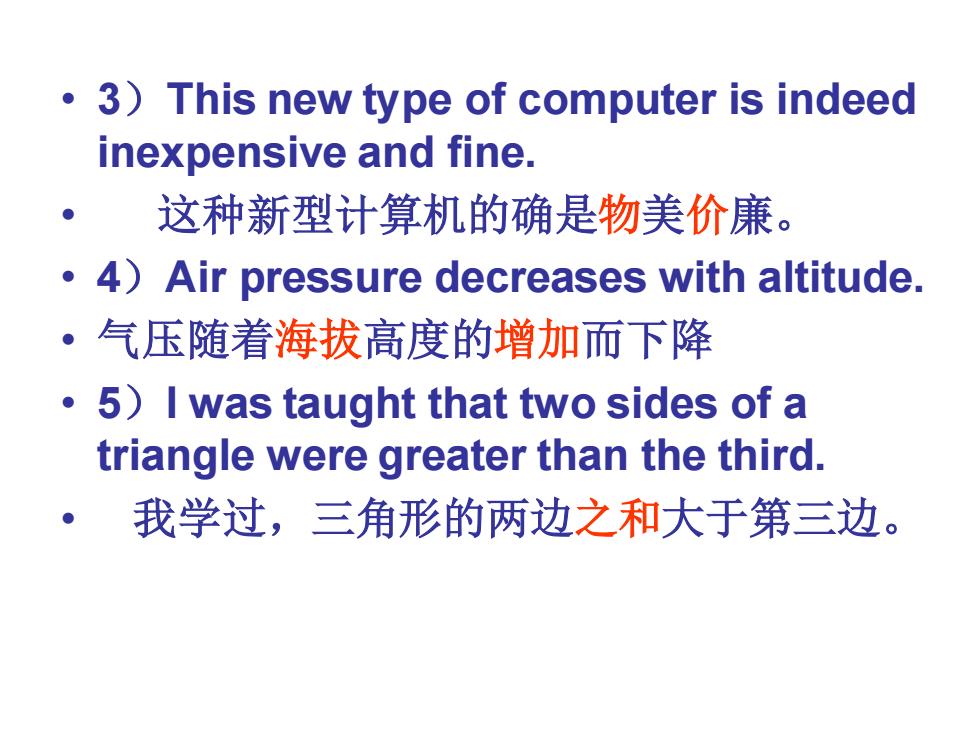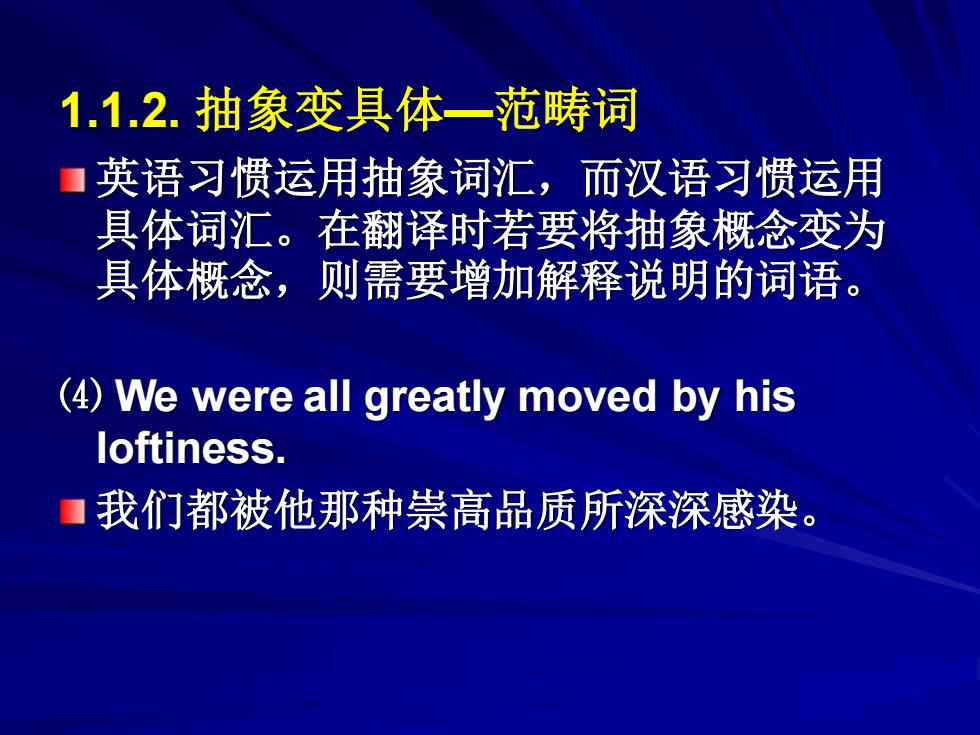
1.增补法:amplification 译者往往需要把原文中隐含的一些东西 增补清楚,以便于读者理解。 Success is often just an idea away. 原译:成功往往只是一个念头的距离。 改译:成功与否往往只是一念之差
1.增补法: 译者往往需要把 原文中隐含的一些东西 增补清楚,以便于读者理解。 Success is often just an idea away. 原译:成功往往只是一个念头的距离。 改译:成功与否往往只是一念之差。 amplification

1.增补 ■1.1语义增词 ■1.2语法增词 ■1.3修辞增词
1.增补 1.1 语义增词 1.2 语法增词 1.3 修辞增词

1.1语义增词 1.1.1增加原文字面上没有、而意思上包含的字词 以免导致语义含糊或歧义。 (1)The crowds melted away. ■人群渐渐散开了。 2A班学习成绩很好。 The students in Class A have won a brilliant academic record
1.1 语义增词 1.1.1增加原文字面上没有、而意思上包含的字词, 以免导致语义含糊或歧义。 ⑴ The crowds melted away. 人群渐渐散开了。 2 A班学习成绩很好。 The students in Class A have won a brilliant academic record

3)This new type of computer is indeed inexpensive and fine. 这种新型计算机的确是物美价廉。 4)Air pressure decreases with altitude. 气压随着海拔高度的增加而下降 5)I was taught that two sides of a triangle were greater than the third. 我学过,三角形的两边之和大于第三边
• 3)This new type of computer is indeed inexpensive and fine. • 这种新型计算机的确是物美价廉。 • 4)Air pressure decreases with altitude. • 气压随着海拔高度的增加而下降 • 5)I was taught that two sides of a triangle were greater than the third. • 我学过,三角形的两边之和大于第三边

1.1.2.抽象变具体一范畴词 英语习惯运用抽象词汇,而汉语习惯运用 具体词汇。在翻译时若要将抽象概念变为 具体概念,则需要增加解释说明的词语。 (4)We were all greatly moved by his loftiness. 我们都被他那种崇高品质所深深感染
1.1.2. 抽象变具体—范畴词 英语习惯运用抽象词汇,而汉语习惯运用 具体词汇。在翻译时若要将抽象概念变为 具体概念,则需要增加解释说明的词语。 ⑷ We were all greatly moved by his loftiness. 我们都被他那种崇高品质所深深感染